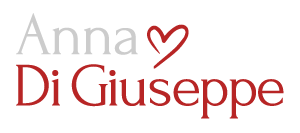 What are the main responsibilities of a CFO?
What are the main responsibilities of a CFO?
Not so long ago I would have given you a textbook answer: “A chief financial officer is in charge of the company’s finances. CFOs have overseeing, administration and reporting functions and support the CEO or entrepreneur in the most strategic decisions.”
Aware of the key role I played for the success of a company, I worked hard to develop the neededeconomic and legal competencies: preparing financial statements, keeping cash flow under control, managing relations with banks and investors…
A manager who feels the weight of responsibility of his/her role is naturally drawn to give priority to specific objectives, like closing a balance sheet, and to rely on his/her technical skills alone.
But experience has taught me that technical skills are not enough to keep a company from going bankrupt or to improve its performance. What’s more, in the long run, hard skills alone won’t sustain your enjoyment of your work. That’s because working with diligence and professionalism is a small consolation if at the end of the day you wasted time and energy inconflicts.
At one point in my career I realized that being competent wasn’t enough for me. I also wanted to be happy. I was tired of working under stress and in a state of alert all the time.
Beyond numbers… the science of happiness
 My career took a turn when I encountered the science of happinessand the Genio+ program. I achieved the balance I had been looking for and defined a new professional project that was more in line with what I was good at, in other words, with my talents.
My career took a turn when I encountered the science of happinessand the Genio+ program. I achieved the balance I had been looking for and defined a new professional project that was more in line with what I was good at, in other words, with my talents.
I discovered that happiness is not an abstract word or an ideal. Happiness is a life skill.
It’s odd to talk about happiness in the workplace. The word is mostly used when talking about corporate welfare. Actually, welfare plans tend to aim lower, employee satisfaction at the most. But happiness is more than satisfaction. Satisfaction is generally dependent on something, a condition, like getting certain benefits.
Happiness, on the other hand, is something that comes beforehand.It is a skill that can be developed and trained, yielding positive returns for people and companies..
I’ll be bold and say that happiness is more than a skill. It is actually a meta-skill,the result of a virtuous mix of soft skills like self-awareness, the ability to communicate effectively with stakeholders (from investors to colleagues from your own and other departments), and the ability to work in teams and manage stress and the unexpected (2020 was a good “test run” on the importance of the latter).
The pillars of the science of happiness in my current roles as CFO and temporary CHO.
The science of happiness gave me this virtuous mix plus a useful approach that led me to develop the happy organization method that I now apply in my roles asCFO and temporary CHO.
The four pillars of the science of happiness are:
- MORE positive chemistry, LESS negative chemistry
- MORE being, LESS doing and having
- MORE us, LESS me
- MORE discipline, LESS chaos
MORE positive chemistry, LESS negative chemistry
Positive chemistry refers to the physiology of happiness.
In my experience as CFO, this concept applies to the workplace.
In a workplace with a high rate of conflict or with a “cold war” climate, people waste time and energy, and the risk of error is higher. Countless times I’ve had proof of the importance of working in a positive environment, where the harmony is real (not fake and abstract) and conflicts are managed and become opportunities for growth.
MORE being, LESS doing and having

This pillar might scare off entrepreneurs and general managers but the real significance behind the “more and less” lies in the order of priority. As a CFO, my goal is to make companies more productive. However, the companies that perform better (i.e. do more and have more) are the companies with a strong identity (i.e., with more “being”), the companies where people are aware of and identify with the mission and values of the company.
MORE us, LESS me
In a positive organization you will find people who work in teams, not “stars” looking to outshine others.
MORE discipline, LESS chaos
Myhappy organizationmethod was greatly inspired by this pillar. I see evidence daily of the fact that becoming a positive organization, doing away with the waste of energy and leveraging the talents of employees, are a must in order to work better.
If you are curious about the science of happiness, visit http://www.2bhappy.it/ where I’m in the company of other great “positive geniuses” who share their experience of positive organizations.





